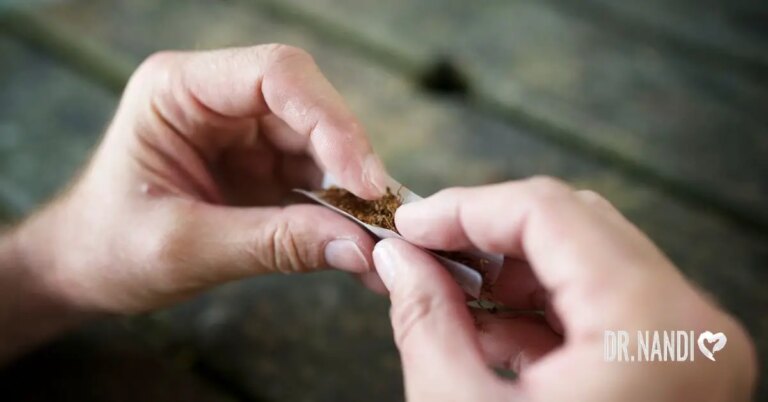Our fathers, through their varied roles in our lives, impart a remarkable impact on us. This isn’t confined merely to the lessons they teach, the jokes they share, or the love they give but extends far into the realm of our very genes. This article explores this profound fatherly influence, particularly how it impacts children through inherited traits.
The Evolving Role of the Father
Historically, the role of fathers has been shifting. The 1960s marked a time when single-parent households were a rarity, with a mere 11% of children raised solely by their mothers. As of 2020, this estimate has rocketed to 21%, indicating an alarming shift in family structure. [1]
The consequences of this trend can be observed in numerous ways. For instance, children who grow up without a father figure often experience less financial stability, perform poorly in school, and have a more limited vocabulary than those whose fathers are actively involved. The influence of a father’s absence also extends to children’s emotional and spiritual health.
This isn’t to understate the role of mothers, who, with their boundless love and sacrifice, shape the lives of their families. However, this article aims to highlight the specific, sometimes less acknowledged, contribution of fathers – both through their involvement and their genetic legacy.

Fatherly Genetics: Decoding the DNA Connection
Let’s delve into the fascinating world of genetics, where the father’s influence works subtly but significantly.
- Genetic Mutations
A groundbreaking study published in Nature Genetics revealed how gene expression in mice varied based on parental origin. Around 60% of paternal genes demonstrated stronger expression than maternal ones. [2]
This suggests that though children receive half of their DNA from each parent, the genetic material’s manifestation isn’t necessarily evenly divided. This means that inherited genetic mutations from the father are more likely to manifest than those from the mother. This phenomenon underpins several intriguing facts that follow.
- Gender Determination
This is a universally acknowledged fact: fathers, not mothers, determine the sex of their offspring. While both parents contribute chromosomes, mothers, possessing only X chromosomes, can only provide an “X” sex chromosome to their children. Men, however, carry both X and Y chromosomes, giving them the potential to pass on either an “X” (resulting in a girl) or a “Y” chromosome (resulting in a boy).
Consequently, genes located on the Y chromosome, termed Y-linked genes, are exclusive paternal contributions.
- Risk of Heart Disease
Not all genetic influences are benign. Men carrying the Y chromosome haplogroup I are 50% more likely to have heart disease, a risk they can pass on to their sons. On a positive note, this risk cannot be transmitted to daughters as it is confined to the Y chromosome. [3]

- Mental Health
Paternal age can significantly affect mental health inheritance. Older fathers are more likely to pass conditions like schizophrenia or ADHD to their offspring due to DNA changes over time. In contrast, the DNA in a woman’s eggs, which are all formed at birth, doesn’t change with age. [4]
- Dental Health
Here’s an intriguing fact: the father’s genes significantly influence dental health. This could be either good or bad, depending on your father’s dental history. If your mother had braces but your father’s teeth are immaculate, your chances of needing dental work diminish. [5]
- Fatherhood
Though infertility doesn’t necessarily hinder individuals from becoming parents thanks to advanced reproductive techniques, it’s essential to note that fathers who conceive through IVF may pass on their fertility challenges to their sons. This correlation was unveiled by a study in the journal Nature. [6]
- Behavior
Besides physical traits, a father’s influence extends to behavior and personality traits. Various studies have shown that fathers have a significant impact on their child’s aggression, empathy, and social behavior. This influence is often a combination of learned behavior and genetic factors. [7,8]
- Intellectual Abilities
The father’s genes also significantly influence a child’s intellectual abilities. Children tend to inherit their IQ levels more from their father than their mother. Additionally, an active and nurturing father can enhance their child’s cognitive skills, language development, and problem-solving abilities. [9]
- Life Expectancy
A child’s lifespan could be influenced by their father’s age at their birth. Children of older fathers are likely to live longer due to the length of their telomeres, the caps at the end of chromosomes that protect the DNA within. [10]
- Physical Traits
Lastly, a father’s genes play a role in determining the physical features of his child, such as hair color, eye color, and height. For instance, if a genetic mutation for a particular trait comes from the father, it’s more likely to manifest in the child due to the strong expression of paternal genes. [11]
The Invaluable Legacy of Fathers
The influence of fathers extends beyond their active participation in their children’s lives. Through genetics, fathers profoundly shape the lives of their offspring, impacting their physical characteristics, health, behavior, cognitive abilities, and even lifespan.
Understanding these inherited traits and influences can lead to more informed decisions about our health and lifestyles. It underscores the need to appreciate fathers not only for their daily contributions but also for their silent genetic legacy that plays a vital role in shaping us into who we are.
Remember, the knowledge of our genetic inheritance should empower us rather than limit us. Genetic predispositions are not definitive; lifestyle changes, timely interventions, and preventive measures can help manage many genetic risks. In the broader picture, it is a complex interplay of both genetics and environment that determines our overall health and well-being.

My Personal Journey
Reflecting upon my journey, I realize the invaluable role my father played in shaping me into the individual I am today. His influence wasn’t confined to lessons about life or imparting moral values alone; his genetic legacy has been an unseen yet potent force shaping my very being. It was through his love, guidance, and the very DNA he passed onto me that I learned the essence of life, resilience, and empathy.
Now, as a father myself, I embrace my parental role with immense respect and fervor, echoing the love and dedication my father showered upon me. I invest substantial time in my children’s lives, understanding that my presence not only offers them emotional security but also shapes their physical, intellectual, and emotional development.
This involvement nurtures me as well, reinforcing my values, grounding me in my roots, and presenting a clearer perspective of life. Indeed, being a father is a beautiful cycle of giving and receiving, shaped by the past, influencing the present, and molding the future. As I nurture these precious bonds, I am continuously reminded of my father’s influence, and I strive to pass on the best of this legacy to my children.
The role of a father, I’ve learned, is not just a responsibility but a privilege, an honor, and a journey of lifetime growth and love.

My Personal RX on Parenting and Child Development
1. Embrace Parenthood with Openness and Patience: Parenting can be challenging, but it’s also a rewarding journey. Understand that every child is unique and requires individualized care and attention. Be open to learning from your child as much as they learn from you.
2. Nurture a Strong Relationship: Dedicate time to building and nurturing a strong relationship with your children. This involves active participation in their daily lives, understanding their interests, listening to their concerns, and showing unconditional love and support.
3. Model Healthy Habits: As parents, you are your children’s first role model. By demonstrating healthy habits — be it physical, mental, or emotional — you can positively impact your children’s long-term well-being and lifestyle choices.
4. Education on Inheritance: Educate your children about the role of genetic inheritance in their overall health and characteristics. They must understand that while genetics plays a part in who they are, it doesn’t define them completely. Environmental factors, lifestyle choices, and personal development also have significant roles.
5. Seek Timely Interventions: If there’s a history of specific health conditions in your family that your children might inherit, don’t hesitate to seek preventive measures or timely interventions. Regular health check-ups and consultations with health professionals can help in managing potential genetic risks.
If stress and life challenges are getting in the way of your relationships, I highly recommend you download a free copy of my Calming the Chaos meditation series to help you de-stress and re-prioritize to be able to be that best parent you desire to be.
As parents, it’s crucial to lead by example in maintaining healthy habits. This includes balanced eating, regular physical activity, stress management, and a consistent supplementation regimen. My specially formulated Immune Support supplements can play a vital role in your daily health routine.
Remember, taking care of your health isn’t just beneficial for you; it also positively impacts your family’s well-being. By maintaining your health, you’re investing in your children’s future.

Sources:
- U.S. Census Bureau. (2022, March 25). Percentage and number of children living with two parents has dropped since 1968. Census.gov. https://www.census.gov/library/stories/2021/04/number-of-children-living-only-with-their-mothers-has-doubled-in-past-50-years.html
- Crowley JJ, Zhabotynsky V, Sun W, et al. Analyses of allele-specific gene expression in highly divergent mouse crosses identifies pervasive allelic imbalance [published correction appears in Nat Genet. 2015 Jun;47(6):690]. Nat Genet. 2015;47(4):353-360. https://doi.org/10.1038/ng.3222
- Charchar, Fadi J et al. “Inheritance of coronary artery disease in men: an analysis of the role of the Y chromosome.” Lancet (London, England) vol. 379,9819 (2012): 915-922. https://doi.org/10.1016/s0140-6736(11)61453-0
- Malaspina, Dolores et al. “Paternal age and mental health of offspring.” Fertility and sterility vol. 103,6 (2015): 1392-6. https://doi.org/10.1016/j.fertnstert.2015.04.015
- Shearer, D. M., & Thomson, W. M. (2010). Intergenerational continuity in oral health: a review. Community Dentistry and Oral Epidemiology, 38(6), 479–486. https://doi.org/10.1111/j.1600-0528.2010.00560.x
- Wunsch, H. (1999). Infertility passed from father to son. Nature. https://doi.org/10.1038/news990715-10
- Genes play key role in parenting: Children also shape parents’ behavior. (2014, March 14). ScienceDaily. https://www.sciencedaily.com/releases/2014/03/140320101501.htm
- Stewart, M. G., & C, D. (1983). Father–son resemblances in aggressive and antisocial behavior. British Journal of Psychiatry, 142(1), 78–84. https://doi.org/10.1192/bjp.142.1.78
- Plomin, R, and I J Deary. “Genetics and intelligence differences: five special findings.” Molecular psychiatry vol. 20,1 (2015): 98-108. https://doi.org/10.1038/mp.2014.105
- Eisenberg, D., Rej, P. H., Duazo, P., Carba, D. B., Hayes, M. G., & Kuzawa, C. W. (2019). Testing for paternal influences on offspring telomere length in a human cohort in the Philippines. American Journal of Physical Anthropology, 171(3), 520–528. https://doi.org/10.1002/ajpa.23983
- Rosenberg, J., & Wilcox. (2006). The Importance of Fathers in the Healthy Development of Children. U.S. Department of Health and Human Services Administration for Children and Families Administration on Children, Youth and Families Children’s Bureau Office on Child Abuse and Neglect. https://www.childwelfare.gov/pubPDFs/fatherhood.pdf



















